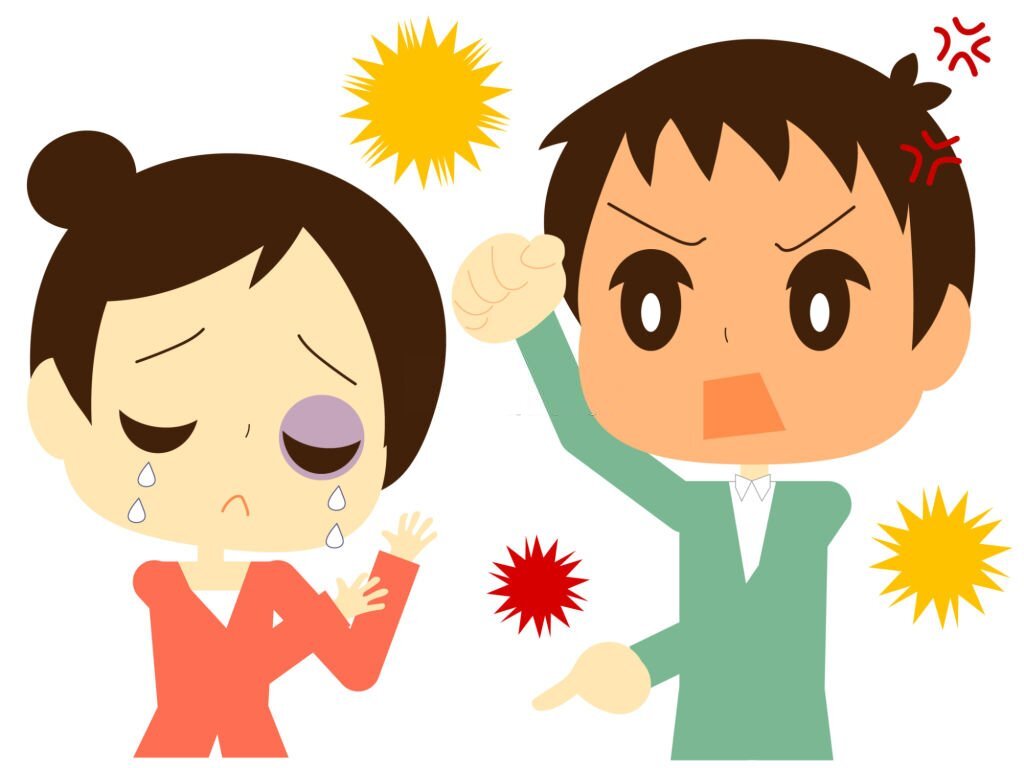The term domestic violence refers to abusive behavior in any personal relationship that allows one partner to intimidate, or gain power and control over the other. This is often thought of to occur between married spouses or in other intimate relationships but actually refers to any family relationship, or persons living in the same home.
Domestic violence includes physical, sexual, psychological, and emotional abuse, as well as threats of violence or economic control. These are behaviors intended to intimidate, frighten, terrorize, humiliate, manipulate, coerce, blame, or injure someone. To explore this concept, consider the following domestic violence definition.
Anyone who has seen a family destroyed by domestic violence can wonder what would make a person act that way. Many perpetrators of domestic violence strike out without warning. Think of Ray Rice, who was a star in the National Football League. He was well-liked and a pillar of the community, when one night he got in a fight with his fiancée and knocked her out in an elevator. Since that time, he has, by all accounts, gone back to being a good person who helps other people avoid his mistakes.
Some of the factors influencing domestic violence are:
Mental Problems
Women who are victims of severe physical abuse are likely to suffer from mental illness. The illnesses included anxiety, depression, alcoholism and drug dependence, antisocial personality disorder, and schizophrenia. It is not exactly clear if mentally ill women tend to be abused, or if abused women develop mental illness. Nonetheless, it appears likely the two unfortunate situations occur together, leading to one of the major factors that contribute to domestic violence.
Poverty and Unemployment
People in dire financial straits are more likely to be involved in domestic violence. Half of homeless women and children are victims of domestic violence. One major cause of this trend is the fact that abuse victims in poverty often lack the means to escape the situation. They may not have access to legal help or be able to afford their own housing. Abusers usually take steps to keep their victims in poverty as well. For example, an abuser may sabotage a job opportunity for their victim in order to keep the victim dependent on the abuser.
Education
Around the world, education makes a huge difference in the rates of causes of family violence. Each additional year of schooling is associated with an increase in awareness and a woman’s ability to ward off unwanted sexual advances. Women with some secondary education lower their risk of domestic violence. This is possible because women with more education are more likely to see themselves as equal to their abusers and to have the means to secure their independence and avoid any factors of family violence.
Historical Factors
Freedom for women and respective equality is still a matter of debate and is being fought for. So, the change of mindset is bound to take time. So, what causes domestic abuse? Society was male dominant in earlier times. So, even if the situation of patriarchy and male dominance doesn’t exist in all pockets of society, it is not entirely possible to eradicate one of the biggest causes of domestic violence all at once. As a result, the superiority complex and the inherent evil of chauvinism act as one of the major causes of domestic violence.
Cultural Factors
When two people from different cultures decide to be wedded, it is not necessary that they both are acquainted with the differences in the culture. It might seem exciting at first, but with time, cultural differences can play as one of the common causes of domestic violence. What might seem appropriate to one culture could be appreciated in another. And this will create one of the significant causes of family violence. If couples do not adopt cultural differences with a conscious approach, this can lead to domestic violence causes. It can ultimately put the future in question. How to raise the kids? What cultural ideology to follow? A lot comes into the scene if couples don’t share cultural compatibility and/or disrespect each other’s choices.
Self Defense
In the list of causes of domestic violence, self-defense can also act as an obvious factor. Many spouses can resort to violence to avoid any outbreak from their partner or act in response to their partner’s abuse. That means, if one partner is using any form of violence, another can mirror the same. On the other hand, the other partner can also take a step to introduce domestic violence if they feel a profound sense of relationship control from their partner. In order to balance out the power, this might seem to them like a last resort. However, using violence can only be justified when the partners have no other way to defend themselves.
Alcoholism
The use of alcohol and drugs can also lead to the occurrence and be the cause of domestic violence. Excessive drinking and drugs can be significant contributors to and causes of spousal abuse. This can lead to the ongoing pattern of abusive behavior by one partner. Alcoholism can lead to the formation of patterns, and if it is not controlled in time, it can lead to a constant need to maintain and control the relationship by the partner affected by the vice.
Suspicion of Infidelity
The spousal relationship is meant to be based on trust and faith. However, at times, when the trust is put to question, it can act as the cause of domestic violence in marriage. If a partner feels that another is not preserving the sanctity of marriage and is cheating on them, they might think of violence as the solution. The suspicion of infidelity can make the partner bitter and lead to opportunity-based crime and violence. In the video below, Emma Murphy talks about how taking a stand can avoid abuse. It is essential to consciously turn the terror of being a victim into a favorable situation.









